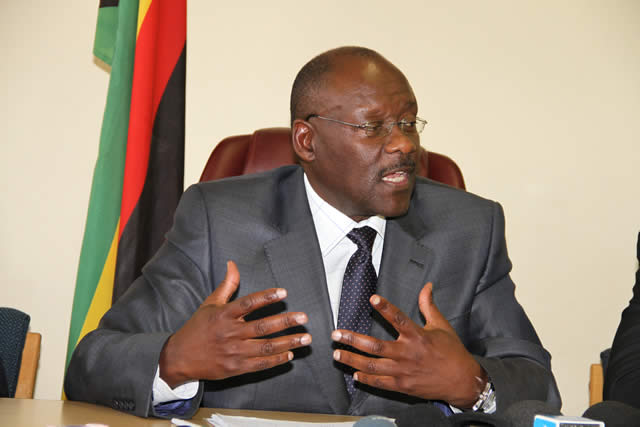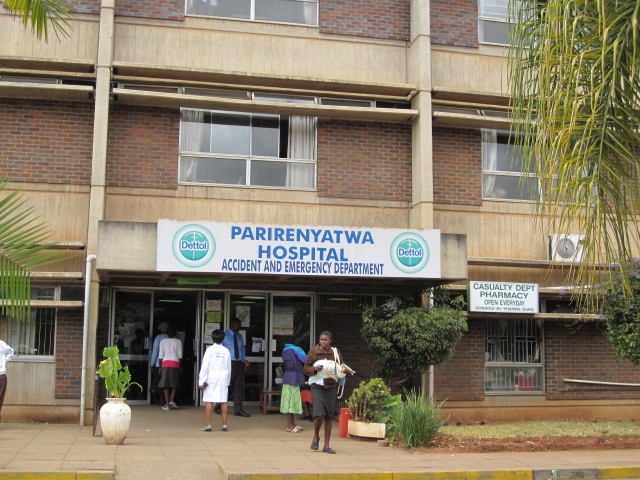New law to address doctors, medical aid row to be crafted

Nyemudzai Kakore Harare Bureau
THE Government is promulgating a law that seeks to address stalemates that arise between doctors and medical aid insurers, Health and Child Care Minister Dr David Parirenyatwa has said.
This comes after doctors recently announced that with effect from July 1 they would be demanding cash up-front from patients.
Dr Parirenyatwa said Treasury had also appointed a mediator to solve the garnishing of accounts of Zimbabwe Medical Association members by the Zimbabwe Revenue Authority.
“My Ministry has embarked on the process of crafting a Bill for regulation of medical aid societies. Five weeks ago, the principles of this bill were accepted and passed in Cabinet and the drafting process has started. We now have a draft which will circulate to all stakeholders. We want to find out from you legislators how we can expedite the Bill so that it becomes an Act to be effective.”
The Bill when passed into law, will among other things address issues of disagreements over tariffs, audits, conflicts of interests among insurers of building, owning and running medical facilities among other issues.
This was after a meeting was held between his Ministry, Finance and Economic Development Minister Patrick Chinamasa, Association of Healthcare Funders of Zimbabwe (AHFoZ), and ZiMA.
Giving a ministerial statement on the situation and challenges between health insurers and health care providers in the National Assembly on Thursday, Dr Parirenyatwa said a long term solution was roping in the services of actuaries in the fixing of medical aid prices.
He said to resolve the issue of co-payments, medical insurers and providers must agree on new tariffs that are affordable to medical aid societies and acceptable to the service providers. “You have heard of challenges in the working relationship between medical aid societies as individuals of Health Care Funders of Zimbabwe (AHFoZ) and providers of health care services particularly doctors as represented by Zimbabwe Medical Association (ZiMA).
“As a regulatory authority, my ministry called for an urgent meeting to resolve the looming crisis. We had a meeting of over three hours to prevent further deterioration over the situation and important stakeholder of the Ministry of Finance Economic Development Cde Patrick Chinamasa was present at this meeting.
“We sought to immediately avert the potential crisis that will be ushered in by the cash position. We therefore implored ZiMA to give the engagement more time. The Minister of Finance will look into how the taxation timing issues could be handled. Those in arrears were to work towards a framework to pay for claims within the statutory 60 days.’’
To protect interests of innocent clients, Dr Parirenyatwa said they realised that some issues needed more time and agreed that come June 27, stakeholders involved were to report back their positions.
He said further engagements would address regulations such as grey areas not well addressed in the current Statutory Instrument.
ZiMA had announced that beginning July they would stop accepting patients on medical aid demanding cash up-front.
Dr Parirenyatwa said challenges from providers are, payment by insures to providers based on the insurers preferred tariffs rate, delays in meeting payments for services rendered, referral of clients by insurers to preferred networks of providers and their own clinical laboratory services.
Other issues are disregarding of gazetted fees by the insurers, unfair and crippling taxation and recovery practices by Zimra based on claims launched by providers to insurers which claims are yet unpaid and outstanding at time of taxation.
He said challenges as seen by the insurers were, charges by providers that were way beyond what insurers could afford, demands by providers from patients of cash payments upfront while clients were holing valid insurance cover.
He was responding to a question from Buhera South Member of Parliament Cde Joseph Chinotimba and Zvimba’s Cde Ziyambi Ziyambi on when the Bill would become law.
Dr Parirenyatwa said: “We agreed that there should be an actuarial determination of tariffs. It’s true that our health services in the private sector are high and drugs are more expensive than in other countries. This is reflective of our economy but let us resource our health services.”











Comments